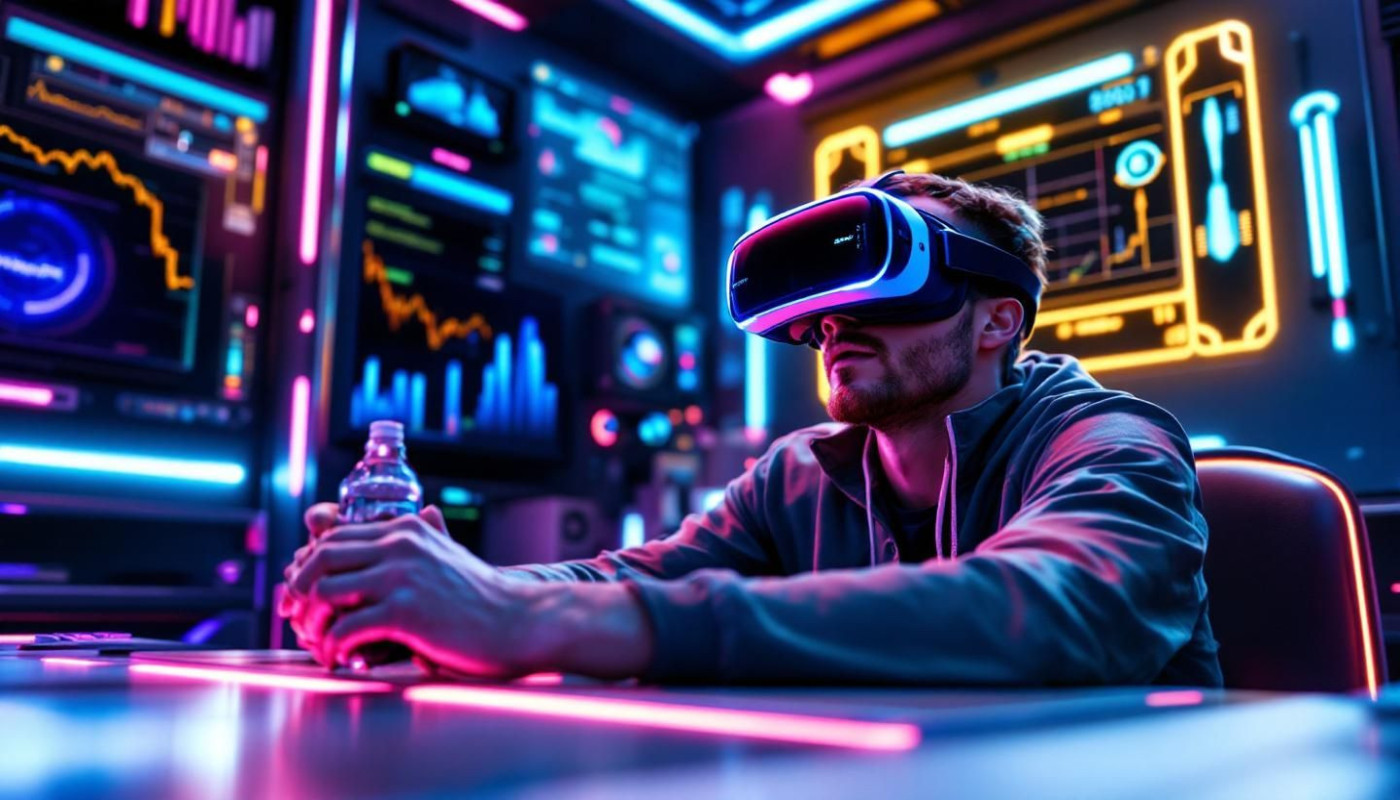Table of contents
Discover how the world of gaming is rapidly transforming with the integration of blockchain technology. In this article, explore the unique mechanics that are empowering players not just to play, but to earn real rewards from their in-game achievements. Dive deeper to uncover how these innovations are shaping the future of interactive entertainment and why it's essential for every gamer and investor to understand these changes.
Understanding blockchain in games
Blockchain gaming introduces a groundbreaking approach by utilizing a decentralized ledger to securely record ownership of in-game assets, transactions, and player achievements. Unlike traditional centralized servers, a decentralized ledger distributes data across numerous nodes, greatly enhancing the security and transparency of all in-game activities. This ensures that every transaction, from item exchanges to achievement unlocks, remains visible and immune to manipulation, fostering trust among players and developers alike.
The integration of smart contracts into blockchain gaming further revolutionizes the industry by enabling automated, trustless transactions. Smart contracts are self-executing agreements coded directly onto the blockchain, eliminating the need for intermediaries and mitigating risks of fraud or disputes. By deploying these contracts, games can automate complex in-game mechanics—such as the distribution of rewards or enforcement of rules—ensuring fairness and consistency across the ecosystem.
In recent years, the play-to-earn model has gained significant traction due to the transparent and secure nature of blockchain-based games. Players are rewarded with digital assets or tokens that are verifiably owned and tradeable, thanks to the decentralized ledger. This combination of trustless transactions and verifiable ownership transforms games into viable sources of income for players, creating a dynamic, player-driven economy and opening new possibilities for engagement and participation.
Play-to-earn: A new paradigm
The play-to-earn model has transformed gaming by enabling players to earn real value through their in-game activities. Unlike traditional games, blockchain-powered platforms allow users to own digital assets such as characters, weapons, or land, which are securely stored as NFTs on the blockchain. This ownership means that in-game currency and assets are not just confined within a single ecosystem; players can trade or sell them in open marketplaces, often for cryptocurrencies or even fiat money. Tokenomics plays a central role by carefully balancing the supply and demand of tokens, ensuring a sustainable in-game economy where rewards remain meaningful. As participants complete quests or reach achievements, they receive blockchain rewards in the form of tokens, which can be staked, traded, or reinvested to enhance their gaming experience or generate further returns.
This economic structure leverages the transparency and security of blockchain technology, ensuring that digital assets are scarce, verifiable, and valuable beyond the game itself. With the advent of play-to-earn, developers must design robust tokenomics to prevent inflation and maintain long-term engagement. Players now have genuine opportunities to convert their time and skills into tangible income, as every transaction is recorded and assets can be freely exchanged. The result is a thriving, decentralized system where in-game currency and rewards have real-world significance, making gaming not just a pastime but a viable source of earnings for dedicated participants.
Non-fungible tokens explained
Non-fungible tokens (NFTs) in gaming represent a transformative advancement in digital asset management, offering players verifiable blockchain ownership of unique assets within virtual worlds. A non-fungible token is a cryptographic token on a blockchain that certifies the uniqueness and provenance of a digital item, distinguishing it from interchangeable or fungible tokens like in-game currencies. With non-fungible token standards such as ERC-721 and ERC-1155, games can provide players with digital collectibles—such as exclusive skins, weapons, characters, and virtual land—that are truly unique and cannot be replicated. This technology enables players to buy, sell, trade, or display these items across games and marketplaces, creating new economic opportunities and a real sense of personal investment in gaming experiences.
The introduction of non-fungible token-based digital collectibles has a profound effect on player engagement and value retention. Because NFTs in gaming grant true ownership, players can retain value even after leaving a game or switching platforms, which reduces sunk cost concerns and encourages long-term interest. Furthermore, unique assets managed via a non-fungible token can acquire external value, sparking robust secondary markets and new forms of community-driven content creation. For those interested in tracking NFT trends and market data related to blockchain ownership in the gaming sector, platforms like moontools.io provide comprehensive analytics and insights, supporting deeper involvement and strategic decision-making within the expanding NFT ecosystem.
Marketplace and trading mechanics
A well-designed blockchain marketplace is a driving force behind the evolution of blockchain games, allowing players unprecedented control over their digital assets. By leveraging a decentralized marketplace, these platforms enable in-game trading, selling, or even auctioning of unique items such as skins, weapons, or characters, all represented as non-fungible tokens (NFTs). The backbone of this system lies in the infrastructure supporting peer-to-peer exchanges, which eliminates the need for centralized intermediaries and reduces the risks of fraud or manipulation. Smart contracts play a fundamental role in this environment, automating the transfer of ownership and payment, ensuring that transactions are trustless and executed exactly as agreed upon by both parties.
This approach to trading digital assets not only opens new avenues for players to monetize their in-game achievements but also increases liquidity and value for rare or sought-after items. In a decentralized marketplace, the transparency of blockchain technology allows every transaction to be recorded on a public ledger, fostering trust and accountability among participants. Such systems are increasingly attractive for adult audiences who value both the entertainment and investment potential of blockchain games. Peer-to-peer exchanges are enhanced by the programmability of smart contracts, which can enforce trade conditions, royalty payments for creators, or even time-limited offers, all without manual oversight.
A comprehensive understanding of blockchain marketplace mechanics reveals how these innovations are reshaping the gaming landscape. As more titles adopt in-game trading powered by decentralized infrastructure, opportunities emerge for players not only to engage more deeply with game economies but also to participate in a broader ecosystem of trading digital assets. Market analysts with blockchain expertise recognize that the seamless integration of secure, automated, and transparent trading features is a pivotal factor driving the mainstream adoption of blockchain games and the rise of player-driven economies.
Future prospects and challenges
The future of blockchain gaming is being shaped by both exciting opportunities and significant blockchain challenges. As gaming innovation continues to advance, a primary concern remains scalability; blockchain networks must handle increasing transaction volumes without sacrificing speed or cost-effectiveness. Environmental considerations are also gaining attention, with energy-efficient consensus mechanisms becoming imperative as part of the industry's evolution. Regulatory issues present another layer of complexity, as governments and authorities worldwide start to establish frameworks that could impact game economies, asset ownership, and player privacy. User experience will be at the forefront of successful adoption, requiring intuitive interfaces and seamless integration with existing gaming platforms. In sum, the future of blockchain gaming will depend on how effectively these challenges are addressed while leveraging the unique benefits that decentralized technologies bring to the interactive entertainment landscape.
Similar articles

Understanding The Importance Of A Legal Entity Identifier?

Understanding The Essentials Of LEI: When And Why You Need It

How Free AI Tools Are Democratizing Online Search Experiences

Exploring The Reliability Of Quick Online Intelligence Assessments

